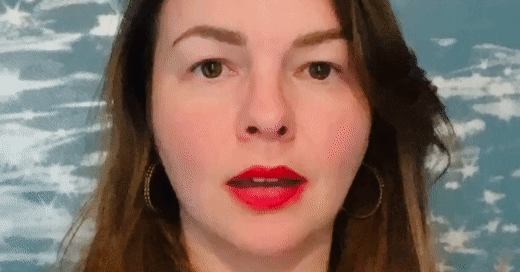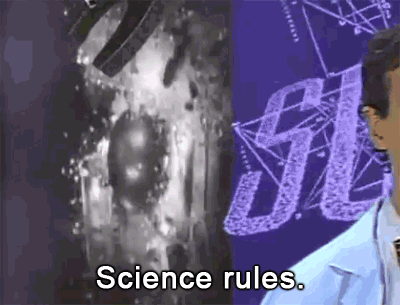I recently went through a two-week period of migraine headaches that left me concerned. The headaches would come on toward the end of the day and would leave me in debilitating pain, making me extremely sensitive to light and sound. Migraines are not a norm for me, and I was getting them almost daily. Where could they be coming from, I wondered? Was I dehydrated? Did I need to see a neurologist? Was I really that stressed out? Two weeks in, I decided it was time to see my doctor. After he took my blood pressure and ran his tests, he looked at me and asked, simply, “Have you been holding your breath a lot lately?”
The question caught me off guard. Breathing was the one thing that I didn’t think I actively needed to think about; it was one thing that happened automatically, without planning or emails or reminder notifications. I know about the importance of breath work and the art of holding your breath for very long periods of time like free divers do, but it never occurred to me that my breathing—or not breathing, in this case—could be causing my severe headaches.
The world has been experiencing a lot of pain and brutality as of late, and like many of us, I feel like a sponge unintentionally absorbing much of it into my body—an unfortunate side effect of being a professional empath as an actor and writer. Yes, the world is always experiencing some disaster, natural or otherwise, but lately things have felt heavier, more frequent, louder: the horrific loss of life and violence in the Middle East and the trauma of those attacks reverberating in every corner of the world; the SAG-AFTRA strike which has surpassed its 115 day, leaving thousands of artists without foreseeable income; my eighty-eight-year-old dad who has been dealing with some health problems as of late (don’t worry, he’s strong). There was also, in the same week, a shelter-in-place order issued by the NYPD for my daughter’s school because of an incident nearby, a really hard but necessary conversation with one of my best friends, and heartbreaking news of a boy my daughter’s age who was hit by a car here in Brooklyn and killed on his way to school. I mean, what could possibly be giving me migraines?! Everything is GREAT!
As it turned out, I had not, in fact, been breathing very well lately. Now that my attention had been called to it, I was able to tie it to other physical ailments that I had previously brushed off, like bouts of dizziness in the recent weeks that I misattributed to lack of sleep or looking at my computer for too long. I was shocked at just how often I was holding in my breath. I caught myself doing it while emailing, working on a new piece of creative writing, cooking, driving—I’ve even been doing it off and on while writing this essay. Apparently, I’m not the only one.
According to physiotherapist and breathing coach Emma Ferris, 80% of us have developed poor breathing techniques. Some of this breathing dysfunction can be attributed to how we breathe (or don’t breathe) through stress. When we’re extremely stressed, our bodies go into something called fight-or-flight response which causes us to react to the world and its cruelties with a trauma response, some of which we are seeing on social media right now. This response, however real and merited, has real-world ramifications for our physical and mental health.
Fight-or-flight mode works like this: When we perceive a threat, the sympathetic nerve fibers of the autonomic nervous system are activated, releasing certain hormones from the endocrine system.
This natural response is a primitive one that has helped us deal with danger since the dawn of time, and part of this response is to hold our breath. We do this to give ourselves more energy to fight whatever we’re flight-ing from, whether running from a predator, fighting in a war, speaking in front of an audience, or anything in between. And while this may have worked well for our ancestors, today it causes more problems than we realize. Holding our breath or not breathing well can contribute to a variety of physical symptoms including high blood pressure, stress on the heart, and—you guessed it—headaches.
There are some really wonderful breathing techniques that can be used to alleviate the stresses and threats of the world, perceived or otherwise, and our own unhelpful trauma responses to them. There is alternate nostril breathing, and mindful meditation that focuses on breath work, and my personal favorite, the 4-7-8 breathing technique. In my opinion, it’s one of the best and easiest techniques to start incorporating into our everyday lives, and the benefits to our minds and bodies are plentiful: better sleep, increased immune system function, lowered blood pressure and heart rate, and more.
If it seems impossible that focusing on our breathing could benefit us so much, let me break it down for you using my favorite teaching method: a Beyoncé analogy. Our lungs are basically the Beyoncé of our respiratory system, the star of the show that help us breathe by exchanging oxygen when we inhale with the excess carbon dioxide from our bodies when we exhale. The backup dancers to our lungs are the brain and heart, which together with the lungs help maintain a pH level in our blood that keeps us physically and mentally healthy. (7.4 pH, baby! Same thing our plants need in order to grow.)
This process—which the scientific community so beautifully named “gas exchange,” but which I am now rebranding as the “Renaissance of Respiration”—aids in balancing acidity and alkalinity levels. It’s like one massive filtration system helping us to survive and destress. It is the simple act of breathing with intention—of consciously tuning in to our bodies—that removes and balances the waste gas of carbon dioxide, replenishes our blood with oxygen, and calms our central nervous systems the fuck down.
Since my doctor asked me if I had been holding my breath a lot lately, I’ve brought my attention back to more mindful breathing, including transcendental meditation which I’ve practiced on and off for years. I’ve also incorporated the 4-7-8 technique more frequently, between emails and meetings. I’m happy to report that after some much-needed mindfulness about my breathing and where I was putting my emotional and physical energy, the migraines stopped.
I’ve learned that while disconnecting from my body during periods of distress might bring temporary relief, it is not a healthy long-term solution. Learning how to tune in to our bodies in times of crisis is, in and of itself, an act of resistance against a culture and world that constantly pushes us into a flight-or-fight state and tells us it’s okay to exist there 24/7. Yes, I know that holding my breath will not fix the world or make my dad any younger or bring back the boy that was killed in Brooklyn. But in caring for our breathing—one of the most overlooked yet vital functions of our bodies—we can calm our nervous systems, allowing us to show up for ourselves and the world.
Now, I’d like to invite you to take a BIG, long breath in with me.
Breathe all the way in, slowly, until the top of your lungs feel full.
Hold it there for just a few seconds, if you can.
Then, slowly, let it out with me.
Let it all out: the pain, the suffering, the fear, the excess carbon dioxide.
Do that a few more times. I’m right here with you, no longer waiting to exhale.
Have you been holding your breath a lot lately? Are you holding your breath now? What changes do you notice in your breathing during times of stress or fear or anger? What tools (breathing or otherwise) do you turn to when you need to center yourself?
Coming up!
Good Riddance: Join us in the Chat for a weekly space to let go of something that’s been bugging you. Every Saturday, I’ll share something I’m letting go of and invite you to do the same. It can be big or small, serious or silly—an interaction that left you feeling not so great, a piece of clothing you’ve been hanging on to for too long, or your anger over a tragically canceled TV show that ended on a cliffhanger. For All Subscribers.
Further Ado: Every month or so, I’ll interview an exciting guest for our video interview series on topics that aim to exhilarate, inspire, and entertain. We’ll cover everything from how to cross new creative thresholds, how to remain politically activated within the boundaries of self-care, behind-the-scenes stories from film and TV sets, and so much more. For Paid Subscribers.
Readings + Prompts: A couple times a month, I'll share a new video made just for you reading something I've written over the years—a poem, an essay, an unpublished work (GULP)—as well as a unique prompt based on that work. Come get entertained and creatively energized. For Paid Subscribers.
Here, Take This, I Love You: Every month we will give away memorabilia and artifacts from the vaults of my office. A signed Joan of Arcadia script! Limited edition broadsides of poetry! Some gum Alexis Bledel once chewed! (I would never.) For Paid Subscribers.









I keep getting your prompts at perfect times. I am sitting in my car, waiting to get my son.
I just breathed with you.
I need to do more of this as well. It's been a rough week with lots of tough conversations. More deep breaths coming for me.
Thank you for this wonderful reminder!
I used to think of my ability to disassociate with my body as a strength. But then I realized, the times I had learned to do it and perfected it were all peak, traumatic stress moments (college athlete training, birth, etc). I’ve started trying to tap into my body more when stressed vs running away from it. Your article really resonates with me, I’ve been trying to do breath work before bed at night and it’s helped a ton!
I hope you keep feeling better! Thank you for this. ♥️